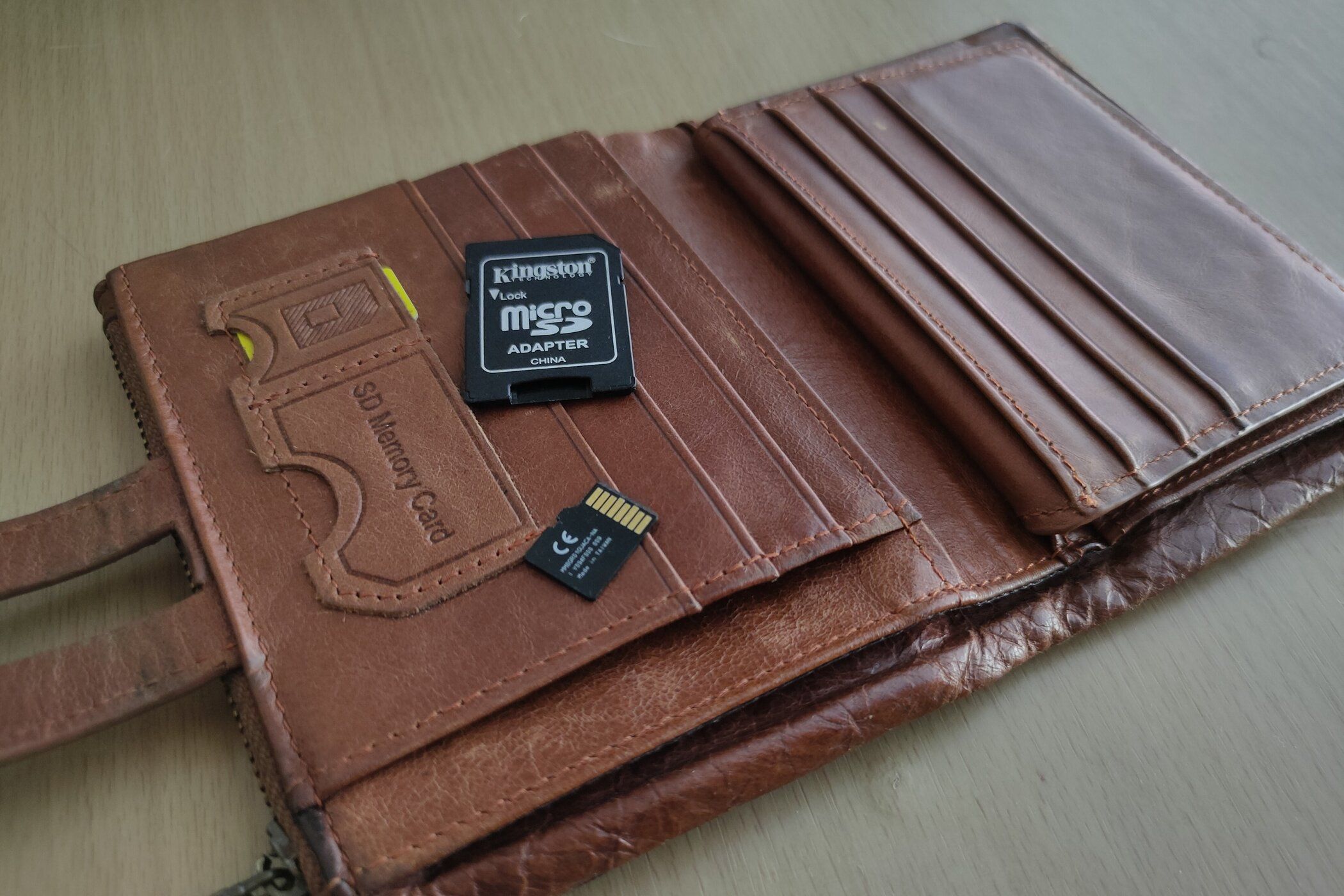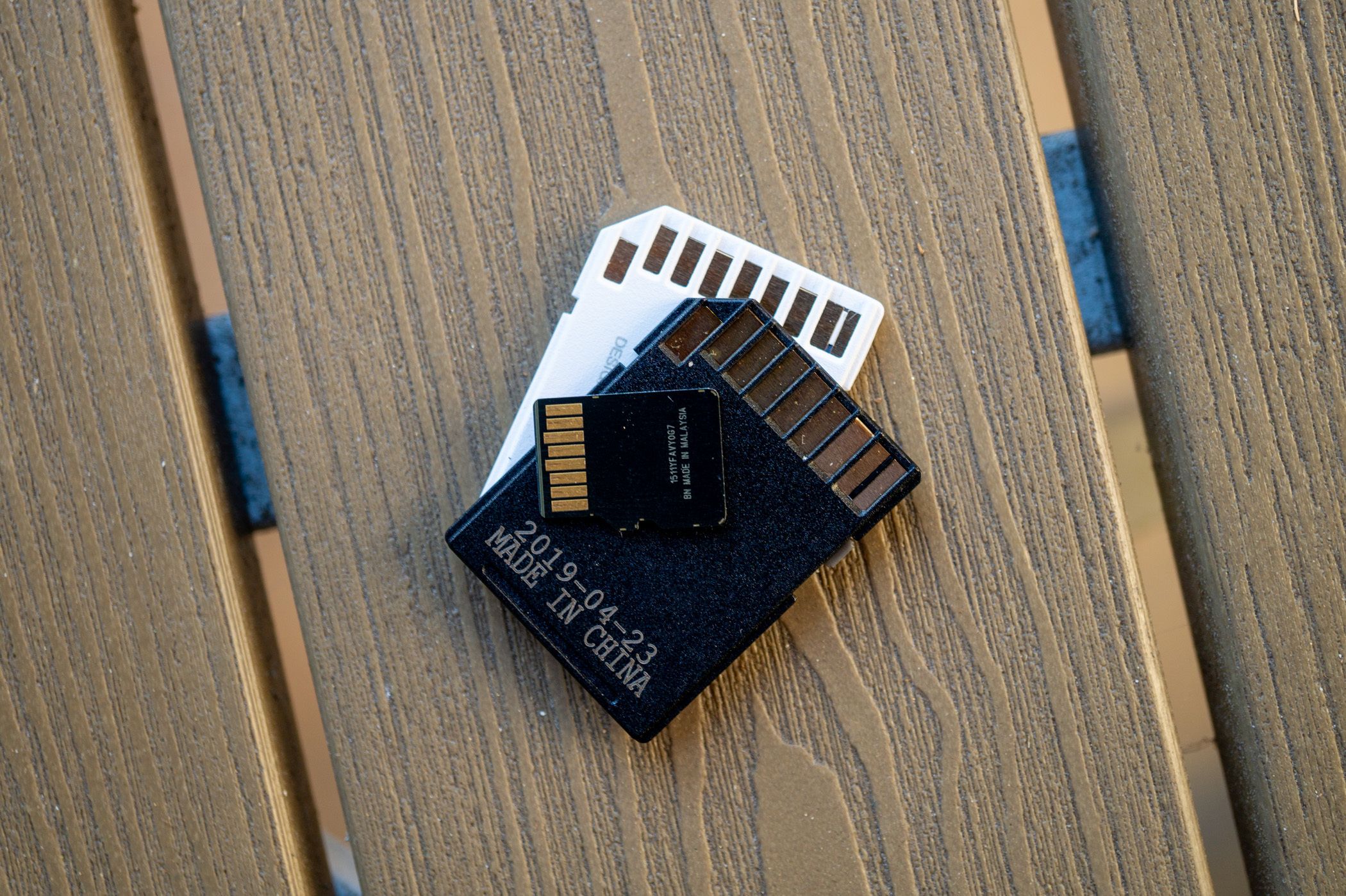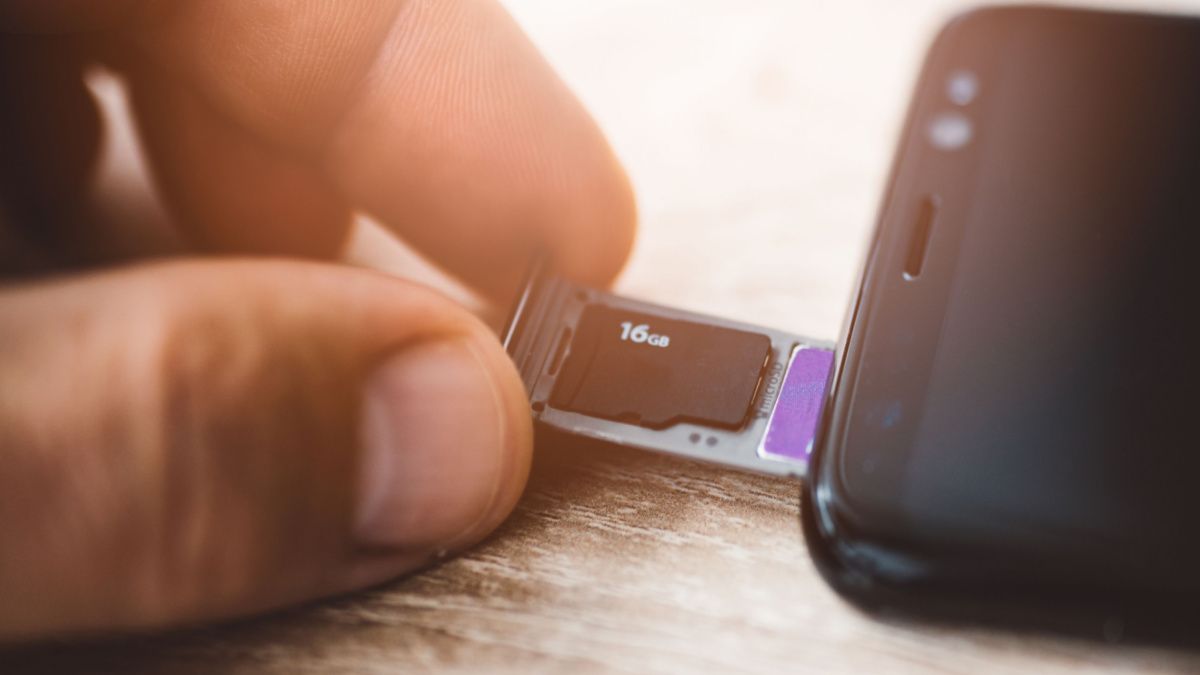Home >Mobile Tutorial >Android Phone >Why Are SD Cards Declining When They\'re So Awesome?
Why Are SD Cards Declining When They\'re So Awesome?
- WBOYWBOYWBOYWBOYWBOYWBOYWBOYWBOYWBOYWBOYWBOYWBOYWBOriginal
- 2024-08-01 09:41:52923browse
SD 카드는 오랫동안 디지털 저장 장치의 필수 요소였습니다. 사진작가, 휴대용 게이머, 매니아들이 여전히 사용하고 있지만 microSD 카드 슬롯이 포함된 휴대폰 배송이 중단된 이후로 주류에서 벗어났습니다. 나는 그들이 다시 주목받을 자격이 있다고 믿습니다.
지갑 속의 테라바이트
SD 카드에서 가장 마음에 드는 점은 종이처럼 얇은 지갑에 넣어도 눈에 띄지 않을 만큼 작은 크기이면서도 방대한 양의 데이터를 저장할 수 있다는 점입니다. 일반 크기 SD 카드는 이미 작습니다. 하지만 microSD 카드는 정말 작습니다. 손가락 끝으로 잡을 수 있습니다. 제조업체가 어떻게든 1.5TB, 심지어 2TB 상당의 스토리지를 확보했다는 것은 정말 인상적입니다.
어떤 맥락에서는 내 PC 전체의 저장 공간이 1.5TB에 달합니다. 대용량 microSD 카드가 장착되어 문자 그대로 내가 좋아하는 게임 12개 이상, 글쓰기 포트폴리오 전체, 고양이 사진 10,000장 이상을 항상 가지고 다닐 수 있었습니다. 나는 항상 중요한 데이터를 모두 가지고 있을 수 있으며 그것에 대해 생각할 필요가 전혀 없습니다.
게다가 직장이나 학교 등 다른 사람의 기기에서 빠르게 데이터를 전송해야 하는 경우 SD 카드는 항상 유용할 수 있습니다. 예를 들어, 저는 수년간 지갑에 빈 1GB microSD 카드와 SD 카드 어댑터를 넣고 다녔습니다.
SD 카드를 휴대하기로 결정한 경우 분실에 대비해 민감한 데이터가 포함되어 있지 않은지 확인하세요.

이 현대적인 대용량 microSD 카드는 대부분의 경우 합리적으로 빠른 전송 속도를 제공하므로 일반적인 저장 장치가 아닙니다. Thunderbolt 5는 아니지만 V90 SD 카드는 최소 90MB/초를 처리할 수 있어 8K 비디오를 SD 카드에 직접 녹화하기에 충분합니다.
빠른 SD 카드는 짧은 시간 내에 한 장치에서 다른 장치로 파일을 전송할 수 있기 때문에 많은 용도로 유용합니다. 예를 들어, LAN 파티에 가서 노트북에 게임을 빨리 가져와야 하는 경우 이미 게임이 있는 PC에서 복사본을 만들어 노트북에 붙여넣고 단 15~20분 만에 게임을 시작할 수 있습니다. . 웹에서 게임을 다운로드하는 것보다 훨씬 빠르며 친구로부터 인터넷 대역폭을 훔칠 일도 없습니다.
USB 플래시 드라이브보다 우수함
지금까지 제가 말한 거의 모든 내용은 USB 플래시 드라이브에도 적용됩니다. USB 플래시 드라이브는 크기도 적당하고 저장 용량도 크며 최신 USB 인터페이스 덕분에 잠재적으로 더 높은 전송 속도에 도달할 수 있습니다. 이 SanDisk 1TB USB 플래시 드라이브는 최대 400MB/s의 읽기 속도에 도달할 수 있습니다. USB-C 덕분에 USB 인터페이스가 어느 곳에나 존재한다는 것은 말할 것도 없습니다.
저는 USB 플래시 드라이브를 좋아하고 항상 사용하지만 대부분의 측면에서 SD 카드가 더 좋습니다. 이미 microSD 카드가 얼마나 작은지 언급했지만, 나란히 놓고 보면 사물을 한눈에 볼 수 있습니다.

제가 새로 구입한 128GB Kingston Exodia USB 플래시 드라이브는 크기도 크고 키체인 고리도 엄청나게 커서 그냥 주머니에 넣고 다니고 있어요. 세 개 중 가장 작은 것은 키체인에 맞지만 여전히 지갑에 넣기에는 너무 큽니다. 반면에 microSD 카드를 가지고 있어도 눈치채지 못합니다.
microSD 카드의 또 다른 이점은 무작위 읽기 및 쓰기 속도에서 USB 플래시 드라이브보다 훨씬 빠르다는 것입니다. 무작위 읽기 및 쓰기는 외부 저장 장치에서 직접 앱을 실행할 때 매우 중요합니다. 예를 들어 휴대용 장치의 내부 저장소로 게임을 옮기는 대신 SD 카드에서 직접 게임을 플레이하려고 할 때입니다. USB 플래시 드라이브는 순차 읽기 및 쓰기 기능이 뛰어나 파일 전송에는 적합하지만 앱 실행에는 적합하지 않습니다.
Tom's Hardware의 Avram Piltch는 Raspberry Pi 4에서 SSD, microSD 및 USB 플래시 드라이브의 차이점을 시연했습니다. 그는 USB 드라이브가 OS를 실행하는 데 사용할 수 없는 유일한 저장 장치라는 것을 발견했습니다. 결과적으로 성능이 매우 느리고 응답하지 않게 됩니다.

The last argument in favor of microSD cards is standardization. The SD Association sets the standards for various SD card specifications. This includes clearly defined speed classes that ensure consistent performance, which makes shopping for a microSD card a stress-free experience. If your device calls for a UHS-II U3 card, you can get a microSD card with that specification (or better), knowing it'll work as expected.
In contrast, USB flash drives often highlight their maximum potential speeds, which don't necessarily reflect their real-world performance. The USB interface is standardized, but the speed ratings that flash drives promise are not. Just because a USB flash drive uses the USB 3.2 connector doesn't mean that it can hit data transfer rates of up to 20Gbps.
Hot-Swappable Media
Thanks to the fast random read and write speeds, you can run most apps and games without significant performance issues directly from the SD card. If you use a handheld, you can have a bunch of microSD cards with different games installed and easily switch between them, reducing your reliance on internal storage. Most of the time, you don't have to reboot the device to get the games working after swapping the SD card.
If you're a photographer, you know how beneficial hot-swapping SD cards is. When you run out of storage, you can remove the filled SD card and pop a fresh one in, so your only limit is how many empty SD cards and charged batteries you have on hand. SD cards are also great for dash and security cameras because you can easily swap them out as they fill up if you don't want the old recordings to get overwritten.
Another fun idea is to use SD cards for music similarly to how we use CDs—fill your SD cards with music, but instead of doing albums, you could do whole genres. You can buy a 10-pack of 8GB microSD cards and store around 2,000 MP3 files on each. It's perfect if you want to have a large, categorized library of offline music.

Cheap Offline Storage
Like other forms of flash memory, SD cards can last at least 10 years under the right conditions. They're not as permanent as M-DISCs, but 10 years is still a solid figure if you just use the SD card for redundancy.
In addition to the cloud, you should always have offline backups of your most important files on as many offline storage devices as possible, so SD cards are a cheap way to create redundant backups. Just remember to check the SD cards occasionally to make sure your data doesn't get corrupted.
Expandable Storage in Phones Needs a Comeback

While SD cards aren't going anywhere anytime soon, they are undoubtedly declining in popularity, and I think that it's a shame. It speaks volumes that you can't find a flagship phone with an SD card slot anymore; they're only available on budget and mid-range devices like the OnePlus Nord N30 5G.
I miss times when I could expand my phone's internal storage by offloading data to a microSD card. I ran into this issue last week when I maxed out my phone's storage. I had to offload 40GB worth of photos and videos to my PC and USB flash drive, which means I could no longer view them directly on my phone.
If we gave SD cards the same treatment that we gave to USB, we would have SD card slots and readers on all of our devices. There was a time when PCs and laptops came standard with SD card slots, but that's no longer the case.
It's a shame, really, because SD cards are awesome. They're tiny, so they could bridge the gap between mobile and non-mobile devices. Imagine you could transfer data from your PC onto your SD card and then pop it into your phone to transfer or use the data without having to rely on a USB cable or Wi-Fi router. Simple, convenient, and sadly overlooked.
The above is the detailed content of Why Are SD Cards Declining When They\'re So Awesome?. For more information, please follow other related articles on the PHP Chinese website!
Related articles
See more- Video editing tutorial with Screen Recorder_Introduction to Video Editing Master
- How to check the income of Alipay Yu'E Bao?
- How to solve the problem that the font size of Baidu Tieba Android version is too small and enable night mode
- Does Yidui Android version support incognito setting_How to set incognito status
- One-click screenshot tutorial: How to take screenshots of Honor Magic5Pro

